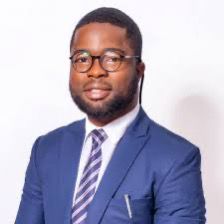Last week, Nigeria’s Minister of Education, Professor Tahir, announced the Federal Government’s decision to enforce the 18-year age limit for the West African Senior School Certificate Examination (WASCE) and the National Examination Council (NECO) due to various concerns about academic integrity and the preparedness of younger students. In recent years, there has been a notable rise in exam malpractice, often attributed to younger students who may not fully understand the consequences of their actions. By setting an age limit, the government hopes to create a more level playing field where students are academically and emotionally mature enough to handle the pressures of these critical exams that chart a path for access to tertiary education.
Nigeria’s recent policy mandating that students must be at least 18 years old to sit for the West African Senior School Certificate Examination (WASCE) and the National Examination Council (NECO) exams has sparked significant debate and national reactions. While the policy aims to curb examination malpractice and ensure that students are mature enough to go through the academic rigors of these exams, it also raises concerns about its broader implications, particularly for out-of-school children and access to global opportunities for Nigerians due to the seeming lack of relevant experience and incomparable exposure with their peers while jostling for prestigious opportunities.

While the policy may have good intentions, it inadvertently penalizes out-of-school children, a group already facing significant educational barriers. According to the United Nations Children’s Fund (UNICEF), Nigeria has one of the highest rates of out-of-school children globally, with approximately 10.5 million children not attending school. Many of these children come from marginalized communities where access to education is limited by poverty, conflict, or cultural norms. For these children, the opportunity to sit for WASCE or NECO exams represents a potential pathway out of poverty. However, enforcing an age limit could further affect and shortchange these students, making it even more difficult to catch up on lost years of education and ultimately limiting their chances of completing secondary education and accessing higher education or vocational training.
Despite the unpredicted and frequent strike actions facing our tertiary institutions, this policy will further exacerbate and increase the gap with out-of-school children because, when students complete their secondary education and are not allowed to move forward with their careers, they may soon become uninterested in seeking tertiary education because of the age restrictions. The age limit policy also has significant implications for Nigerian students’ access to global opportunities, such as scholarships, international programs, and prestigious fellowships offered by institutions like the World Bank and UNESCO. Many of these opportunities are age-sensitive, with specific eligibility criteria for completing tertiary education. Therefore, when there is a delay in completing secondary education, students will be held ransom while pursuing tertiary education at a much older age.
By delaying students’ ability to sit for their final exams, the policy could inadvertently disqualify them from these opportunities, particularly if they cannot complete their exams before reaching the age limit for certain programs. This could further widen the gap between Nigeria and other countries regarding access to global educational and economic opportunities, ultimately hindering the country’s development goals.
While the 18-year age limit for WASCE and NECO exams is a well-intentioned policy, it risks exacerbating existing inequalities in Nigeria’s education system, particularly for out-of-school children. By adopting a more flexible approach and investing in supportive measures, the Nigerian government can achieve its academic integrity and preparedness goals without compromising access to education and global opportunities for the nation’s youth.
By critically assessing and adjusting this policy, Nigeria can better align its educational system with its broader developmental goals, ensuring that all students have the opportunity to succeed both locally and on the global stage.
Jacob Sule is the Executive Director of the iRead To Live Initiative and a Doctoral Student in higher education administration at George Washington University in Washington, DC, United States.
jacob.olaoluwa@gmail.com
READ ALSO:
- Match Day 12 results in 2024/2025 NPFL
- Police deploy personnel to forestall post-election crisis in Ondo
- FRSC unit remembers RTC victims
- Tinubu to participate in G20 leaders’ summit in Brazil
- Tinubu confers GCON on Indian PM, Modi


